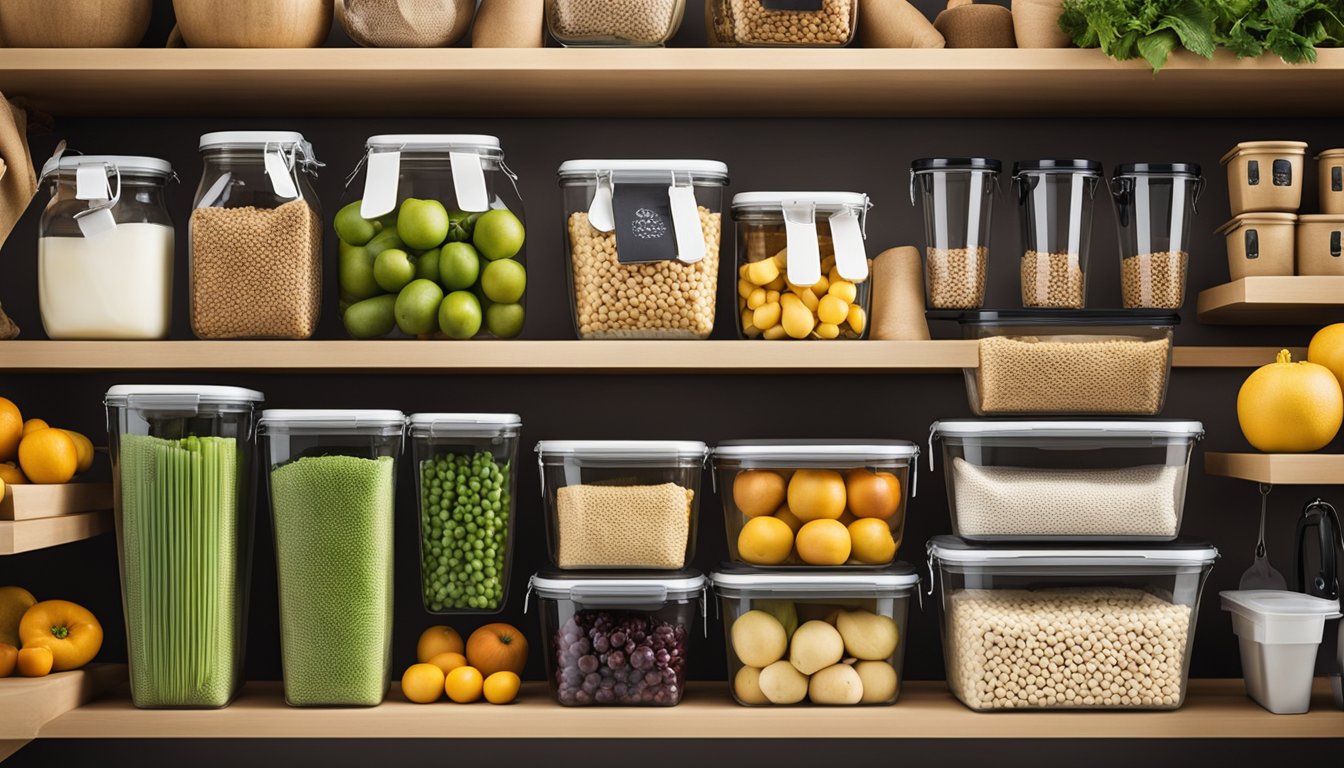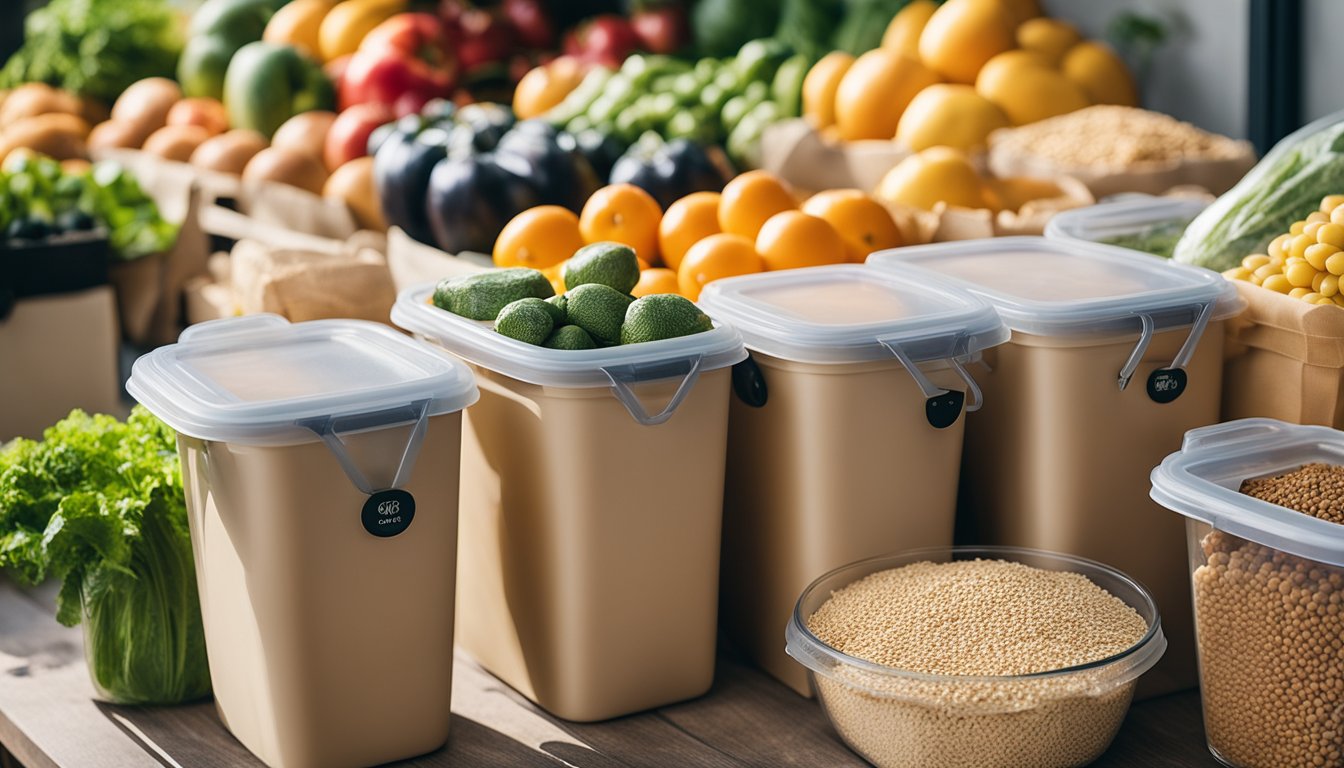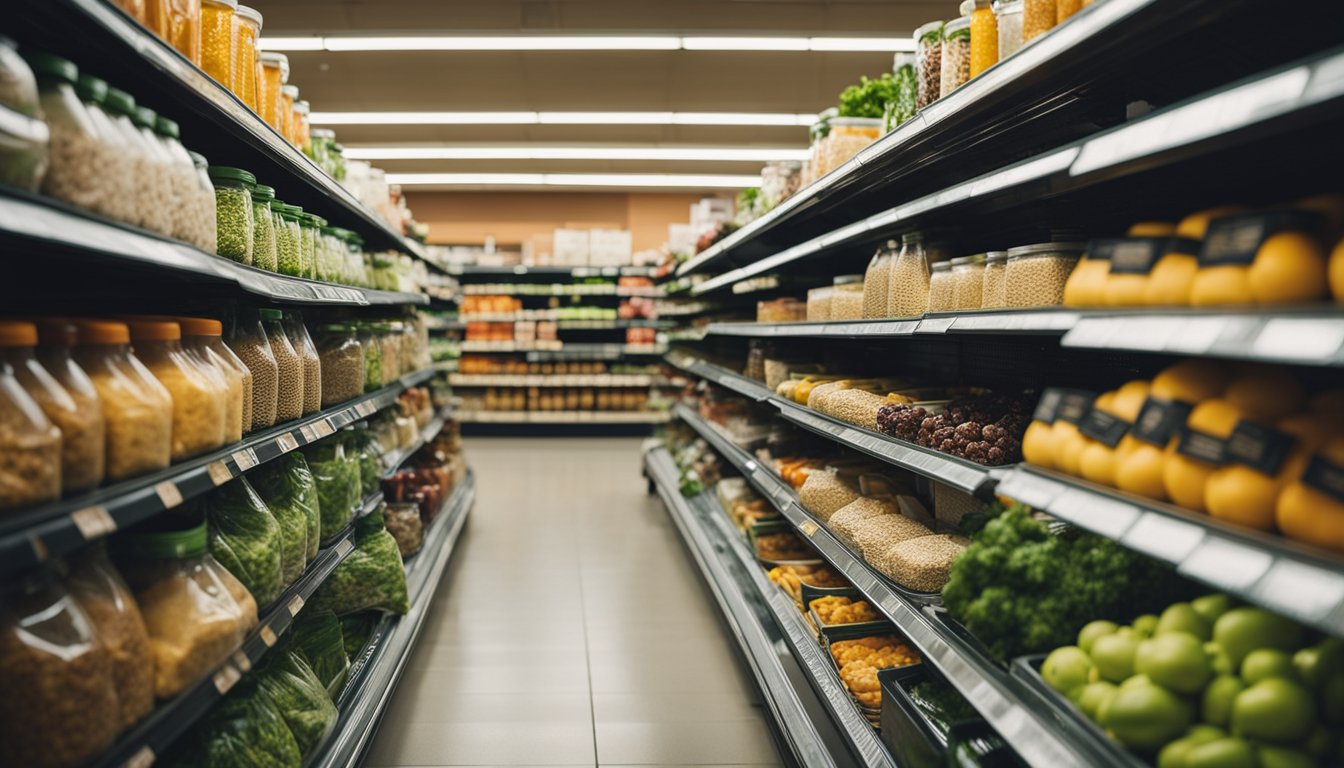Late updated: 29 Mar 2025 15:03
Written by: Sarah Hollister
Sustainable Tips For Zero Waste Shopping: A Simple Guide
Adopting a zero waste shopping routine is an empowering way for us to minimise our environmental footprint. As we make informed choices, not only do we contribute to conserving resources, but we also foster a mindset shift that prioritises sustainability over convenience. Embracing principles such as using reusable bags and containers allows us to reduce waste significantly while shopping.

By bringing our own containers and bags, we're choosing to break away from the reliance on single-use packaging that clogs up our landfills. These small adjustments in our shopping habits can have a significant impact, helping to conserve resources and protect our environment. The zero-waste lifestyle encourages us to refuse unnecessary packaging and choose products that align with our values.
The shift to a zero waste shopping approach is one that invites us all to reconsider how we consume and discard. These steps not only serve the planet but also cultivate a culture of mindful consumption in our communities. This transformation towards sustainable practices marks a journey where every purchase counts for the future.
Key Takeaways
- Zero waste shopping reduces environmental impact.
- Reusable bags and containers minimise waste.
- A zero waste mindset promotes sustainable choices.
Adopting a Zero-Waste Mindset for Shopping
To effectively adopt a zero-waste mindset for shopping, we focus on understanding zero waste's importance, conduct a trash audit, and shift our attitudes towards sustainable practices. By implementing these strategies, we're more equipped to make impactful changes in our shopping behaviours and reduce waste.
Understanding Zero Waste and Its Importance
Zero waste aims to eliminate waste by promoting recycling and reusable products. It involves actively choosing products with reduced environmental impacts.
The importance of this lifestyle extends beyond just environmental benefits. It saves resources, reduces pollution, and supports a sustainable future. Understanding these benefits can motivate us to adopt this lifestyle.
Implementing zero-waste habits in everyday shopping can seem challenging at first. However, recognising the importance of being responsible consumers allows us to make better choices that contribute to environmental health.
Conducting a Trash Audit to Inform Purchases
A trash audit is an effective tool to assess our current waste production. We start by collecting and categorising our waste over a week. This process helps identify the most common types of waste we generate.
An audit reveals valuable insights, such as frequent purchases that contribute to waste. We might notice excessive plastic packaging or disposables.
Using these observations, we can adjust our purchasing habits. For example, by opting for bulk purchases or reusable alternatives, we align our shopping choices with a zero-waste lifestyle.
Making Mindset Shifts Towards Sustainability
Adopting a zero-waste mindset involves deliberate mindset shifts. We examine our consumer habits and question the necessity and sustainability of our purchases.
Making small changes like carrying reusable bags, avoiding single-use plastics, and supporting eco-friendly brands contributes significantly. This shift in mindset encourages us to prioritise quality and longevity over convenience.
Ultimately, embracing a sustainable shopping approach empowers us to influence positive change. It becomes a collective effort where small, intentional decisions lead to significant environmental benefits.
Practical Strategies for Zero Waste Shopping

Adopting zero waste shopping habits helps reduce the environmental impact of consumption. By selecting reusable products, supporting sustainable retailers, choosing local and fair trade products, and incorporating upcycling and thrifting, we can significantly minimise waste and lower our carbon footprint.
Choosing Reusable and Sustainable Products
Using reusable items is key in zero waste shopping. We can replace single-use items like plastic bags and bottles with reusable alternatives. Cloth produce bags, refillable water bottles, and durable shopping bags are excellent replacements.
Not only do these items reduce plastic waste, but they are also cost-effective over time. Biodegradable packaging options, such as those made from bamboo or cornstarch, are available for products that still require a container. By choosing sustainably produced and packaged goods, we minimise our environmental impact and promote better resource management.
Supporting Retailers That Offer Bulk and Package-Free Options
Shopping at bulk food stores or sections helps us avoid unnecessary packaging. These retailers often allow us to bring our own containers, cutting down on both food and packaging waste. We can focus on purchasing just the amount we need, avoiding excess and spoilage.
Many of these shops also carry sustainable packaging alternatives. Chain and independent retailers are increasingly offering package-free shopping, making it easier for us to support environmentally-friendly practices. By frequenting stores with zero waste policies, we encourage more businesses to adopt such initiatives.
Opting for Local and Fair Trade to Reduce Carbon Footprint
Purchasing from farmers markets and stores that source locally reduces emissions related to transport. The shorter the distance our food travels, the lower the carbon footprint. Local produce is often fresher and doesn't require extensive packaging.
Choosing fair trade products ensures that we are supporting ethical practices. Many fair trade items are grown using sustainable methods, ensuring environmental preservation. By prioritising local and ethically sourced goods, we contribute to a healthier planet and fairer global trade practices.
Engaging in Upcycling, Borrowing, and Thrifting
Upcycling involves creatively reusing materials, turning potential waste into something useful. This helps in managing resources efficiently while also indulging in innovative activities. Borrowing items we rarely use, like specialty kitchen gadgets or party supplies, prevents unnecessary purchases and waste.
Visiting a thrift store not only helps us find unique items but also reduces demand for new products. Thrifting prevents excess waste and supports the lifecycle of goods. By embracing these practices, we contribute to waste reduction in engaging and effective ways, promoting a sustainable lifestyle.
Frequently Asked Questions

Zero waste shopping can be both practical and rewarding. Consumer awareness and proactive choices can reduce packaging waste significantly. Strategic planning and sustainable actions can make eco-friendly shopping more accessible and economical for everyone.
What are effective strategies for reducing packaging waste while shopping?
When we shop, bringing reusable bags and containers is crucial. Opting for bulk shopping reduces the reliance on single-use packaging. Exploring farmers' markets provides fresh produce with minimal wrapping.
How can consumers influence supermarkets to adopt more eco-friendly practices?
As consumers, expressing our preferences through requests and feedback can encourage supermarkets to consider eco-friendly policies. Supporting stores that prioritise sustainable practices sends a clear message. Loyalty to these stores demonstrates demand for a greener approach.
What items should one prioritise to avoid when striving for a zero-waste lifestyle?
Items with excessive packaging should be avoided. We recommend steering clear of single-use plastics and opting for products with recyclable or biodegradable materials. Prioritising loose produce over pre-packaged options is another beneficial step.
How does one maintain a zero-waste approach when purchasing fresh produce?
For fresh produce, reusable produce bags are excellent. We should also aim to buy fruits and vegetables in their natural form without plastic coverings. Supporting local vendors who offer produce in a sustainable manner is also advantageous.
What are some common challenges faced in zero-waste shopping and how can they be overcome?
Zero-waste shopping can present challenges such as limited access to eco-friendly stores and higher initial costs for reusable items. We can overcome these by planning our shopping trips carefully and gradually investing in sustainable products.
Can zero-waste shopping be cost-effective and, if so, how?
Zero-waste shopping can be cost-effective by reducing purchases of packaged and processed items. Buying in bulk and choosing reusable products often results in savings over time. Focusing on simple, whole foods can further enhance savings.
